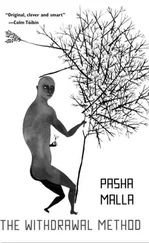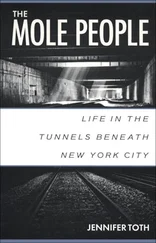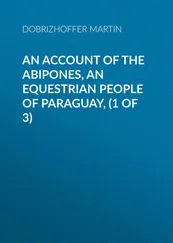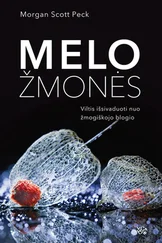So around him Debbie took notes, listened, deferred, and always, always agreed. But what really kept her on his good side was the prospect of being written about: Impart this in your book, he would say, and then enunciate, syllable by syllable, so Debbie didn’t miss a word. Being around someone so firm in his vision of the world, and of his purpose upon it, was comforting. And by writing about him Debbie was getting closer to clarity about her own life as well. Because her own life, thought Debbie, as the train slowed into Mustela Station, felt so vague and shifting, a precarious trudge through churning sand: no matter how firmly she stepped, it always felt to be swirling off course, or backward. She wasn’t even lost: how could you be lost when you didn’t know where you were heading? And so she reeled people in, she surrounded herself with people, she felt all she could do was try to be good, to try in her floundering way to be useful, to help.

A SATELLITE INITIATIVE of the Isa Lanyess Centre for Westend Betterment, the Room occupied an old crabshack at F Street and Tangent 15, right on the water, a building on stilts scummed with algae and around which rippled the lake. But because Upper Olde Towne Station was under renovation and had been for months, Debbie preempted her ride at Knock Street and took the escalator to streetlevel while the train slipped north into the Zone.
On foot she passed Lower Olde Towne’s B&B’s and Islandwear outlets and expensive artisanal concerns, horse-drawn buggies clopped by depositing great steaming dung knolls upon the cobblestones. At the top end of Knock was the Dredge Niteclub, a block-long, three-storey partyhouse that had once been a functioning dredge meant to scour Lowell Canal. Past it was the canal, a gutter of sludge the colour of dead TV screens. Crossing the footbridge Debbie held her breath, the canal’s off-gases shimmered like noxious aurorae, its lustreless surface reflected nothing.
Released into Upper Olde Towne, Debbie gulped cleanish air and headed up F Street. The east — west Tangents ascended, the neighbourhood bustled: greengrocers hawked produce, two girls in throwback Y’s jerseys lobbed a ball back and forth in a concrete parkette, a young couple on a bench smoked Redapples and took turns ashing into a cup. In shadows under the Yellowline’s tracks, the westside of the street was edged with razorwire that fenced in disused lots and docks. Debbie stayed on the sunlit eastside, where rejuvenated properties alternated with boarded-up vacants, the latter supervising the neighbourhood with the staid melancholy of blind widowers.
At the corner of F and 10 was the Golden Barrel Taverne. Already drunks milled about on the sidewalk, taciturn and twitchy, jingling pockets of coins. Debbie smiled, was ignored, kept going north. This had once comprised her jogging route, abandoned when concerned locals kept flagging her down to ask if she was being chased. The Zone wasn’t pretty or quaint but it boasted a certain authenticity, Debbie thought, and though way out on the island’s western fringe it struck her as the city’s heart, vibrant and essential — or maybe its guts.
At Tangent 15 Debbie waved to Crupper, sweeping the front step of the newsstand opposite the Room. He gestured across the street. Seems they got you last night, he said.
Debbie looked: the Room’s front windows had been painted black.
Are you serious? she said.
Crupper shook his head sadly. Animals, he said.
Debbie went up to the window, scratched. The paint came off in a jammy curl under her fingernail, tarlike and still wet.
As always the Room smelled of the faint salmony tang of children and their half-eaten lunches. Debbie hung her coat in the office, checked the messages — none — filled a bucket with soap and water in the bathroom. But before she washed off the blackup she had to attend to the business of her daily We-TV address, which she loathed.
Debbie turned on the camera, readied her spiel: two minutes of tape to satisfy the Island Arts Division trustees and the schoolboard people, who claimed these updates were meaningful to the parents, but what parents would watch it? There were better things on TV than their kids building papier mâché piñatas and Debbie breaking up fights over pastels.
Adine had tuned in to her bit exactly once and that night she’d mimicked, in a perfectly fake-bright voice: Hi, Debbie here! This is the Room’s um, channel! Today’s Tuesday and we’re making time capsules! Debbie had shut herself in the bathroom and moaned, Why’d you watch it, you know I hate doing it, why have you forsaken me? while Adine cackled on the other side of the door.
Eyes shifting around the room, never quite settling on the lens, Debbie covered the date, the day’s crafts (gluesticks, shoeboxes, glitter), and explained the Room would be closed for the long weekend — though, with a three-day tape-to-broadcast delay, she was unsure why this information mattered. When all this was done Debbie shut the camera off and, as its recording light dimmed, felt oddly lonely, unnerved less by the prospect of being watched than by the thought that people, given the choice, might opt not to.
 ITHIN THE ORCHARD on People Park’s eastern fringe, teenagers, some with cameras, watched the last few stragglers filtering back into the city. While Edie videoed, Calum clutched her from behind at the hips, nuzzled her ear, the whisk and swish of her hair against his cheek, his cock throbbed dully in his jeans. But when he winnowed a thumb into the waistband of her skirt Edie squirmed, lowered the camera, and said, We should go to school, and Calum grinded into her and said, Sure? and Edie said, What’s wrong with you, and pulled away, and Calum was left with what might be wrong with him, a bit.
ITHIN THE ORCHARD on People Park’s eastern fringe, teenagers, some with cameras, watched the last few stragglers filtering back into the city. While Edie videoed, Calum clutched her from behind at the hips, nuzzled her ear, the whisk and swish of her hair against his cheek, his cock throbbed dully in his jeans. But when he winnowed a thumb into the waistband of her skirt Edie squirmed, lowered the camera, and said, We should go to school, and Calum grinded into her and said, Sure? and Edie said, What’s wrong with you, and pulled away, and Calum was left with what might be wrong with him, a bit.
IN THE FINAL DAYS of winter he’d gone to a party at Edie’s, her parents were away somewhere tropical on their yacht. From his family’s apartment in Laing Towers Calum walked south, over the Canal, down Knock Street, and up the cobblestone hill to the Mews, the gated harbourside community that lofted over Lower Olde Towne, where, after a call to Edie, the security guard buzzed him through.
Calum passed mansions festooned with pillars and arches and ornately trellised decks, to the Lanyesses’ landscaped yard. On the front porch, smoking, was a girl with her hair shorn into a hand shape, the nape and sides shaved right to the skin. The Hand. Calum ducked behind a bush. Why was she here, how did she get past security? With her were two kids, hoods up, a pair of goblins. Calum shifted, snow tumbled from the top of the bush in a little avalanche. Laughter, cruel and shrill — they’d seen him.
Hey, the Hand called, why you hiding, party’s in here.
So Calum, caught out, made the long dreadful walk up the driveway.
The threesome barely shifted to let him past, he had to squeeze between them, for a moment he was face to face with the Hand, she blasted smoke in his face. Don’t lock the door, she said. We’ll be right in.
In the living room Edie and a half-dozen of their friends sat in a stiff quiet circle, six ciders on the coffee table, six labels peeled to shreds, a boardgame unpacked and so far unplayed, everyone’s pieces loitered on START. Did you see who showed up, Edie whispered. Calum nodded, didn’t go over to kiss her.
And the door opened and in gusted the winter and here they were with their shoes on.
Great party, said the Hand, laughed, as sharp as a slap, the laugh hung fizzing in the air. Nobody moved, nobody said anything. Then there was a cry of, You’re on TV, and one of the goblins plucked a camera off a tripod in the corner and did a slow pan over everyone’s dazed faces, then said, Don’t worry, I’m not taping, and gave the camera to Edie, who held it to her chest like an infant.
Читать дальше
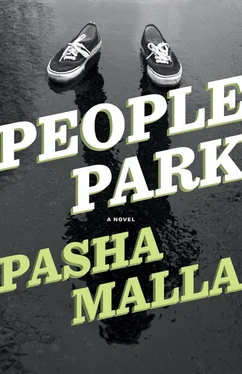

 ITHIN THE ORCHARD on People Park’s eastern fringe, teenagers, some with cameras, watched the last few stragglers filtering back into the city. While Edie videoed, Calum clutched her from behind at the hips, nuzzled her ear, the whisk and swish of her hair against his cheek, his cock throbbed dully in his jeans. But when he winnowed a thumb into the waistband of her skirt Edie squirmed, lowered the camera, and said, We should go to school, and Calum grinded into her and said, Sure? and Edie said, What’s wrong with you, and pulled away, and Calum was left with what might be wrong with him, a bit.
ITHIN THE ORCHARD on People Park’s eastern fringe, teenagers, some with cameras, watched the last few stragglers filtering back into the city. While Edie videoed, Calum clutched her from behind at the hips, nuzzled her ear, the whisk and swish of her hair against his cheek, his cock throbbed dully in his jeans. But when he winnowed a thumb into the waistband of her skirt Edie squirmed, lowered the camera, and said, We should go to school, and Calum grinded into her and said, Sure? and Edie said, What’s wrong with you, and pulled away, and Calum was left with what might be wrong with him, a bit.